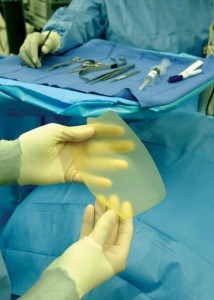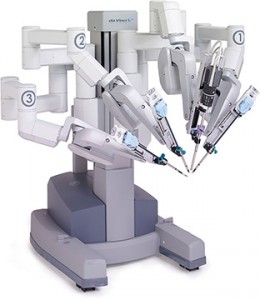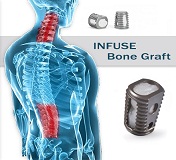Articles Posted in Featured Lawsuits
New Maryland Federal Court Opinion in Humira Lawsuits
Many product liability cases have a medical malpractice component to them. Certainly, in the mass tort world, the da Vinci robotic surgery claims come to mind. In those cases, patients often blame the manufacturer of the robot and the doctor who performed the operation. The question in these cases is whether jurisdiction for the claim is in state court or federal court, assuming the plaintiff prefers state court as we often do.
In Larson v. Abbott Laboratories, a new federal court decision in Baltimore, Maryland, the plaintiff, who was an HIV-positive space engineer, alleged that the prescription drug Humira caused him an infection that left him with permanent brain damage.
So we have real stakes for everyone. A big-selling pharmaceutical drug – with billions of dollars in sales a year – that is on the verge of being the subject of a big-time mass tort and a plaintiff who has a brain injury that could lead to a substantial jury award. So the stakes are high. (The Humira claims are rarely involving HIV patients and infections, to be precise. But the point is a large verdict, and Humira will set off the Pavlovian dogs.)
Da Vinci Recall for Stalling Arms | Lawsuit Information
Add one more issue to the mounting problems that Intuitive Surgical is facing with its da Vinci Surgical Robot. The FDA has announced that the mechanical arms on some of the da Vinci robots could stall during robotic surgery, resulting in short-term or medically reversible health problems, or even serious injury. The recall affects 1,386 Patient Side Manipulators on da Vinci S, Si and Si-e Surgical Systems.
Da Vinci Robot Problems | New Statistics
According to the FDA, problems involving the da Vinci Surgical System are increasing prompting new recommendations for surgeons and calling for more robot surgery training. The problems continue to involve serious injury such as burns, tears, bowl perforations and even death.
An independent investment analysis firm issued a report on October 3rd regarding the increased da Vinci complaints, warning investors about the impact these incidents may have on the stock price for Intuitive Surgical, manufacturer of the da Vinci robot. The report involved figures such as the 2,332 da Vinci complaints received in the first eight months of 2013 as compared with the 4,603 complaints received over the past twelve years from 2000 through 2012. Here is what is even more disconcerting: another study suggests that these problems are often unreported. Who knows that the real data would show?
Continue reading
Avaulta Plus Lawsuit Update | Victim’s Verdict Stands
C.R. Bard has been in the transvaginal mesh cases from the very beginning. I really believe they will try to put together a global settlement that will resolve more than just the cases with pending trial dates. But in the meantime, Bard will do what it has done from the beginning of this litigation: wage war. But facts are stubborn things which brings us back to the same theme: these cases will settle.
 Bard is not only fighting the new cases, it is fighting the battles it has already lost. The most recent battle was a verdict against the company for over $1.4 million.
Bard is not only fighting the new cases, it is fighting the battles it has already lost. The most recent battle was a verdict against the company for over $1.4 million.
Bellwether Verdict
The case was a good test case although it was a case that was actually pretty favorable to the defendant because the injuries were not as serious as they are in some other cases. It is the classic design defect/failure to warn claims against Bard’s Avaulta Plus, a synthetic mesh product designed to treat pelvic organ prolapse. The woman’s lawsuit claimed that that the arms contained in the mesh device, the small pore size used in the mesh, and the use of polypropylene to make the device were design defects. On their failure to warn claim, the plaintiff argued that Bard inadequately warned about the risk and severity of the complications Plaintiff eventually experienced. Plaintiff also argued the obvious: Bard did not adequately warn of the risks. (Does anyone really disagree with this premise? I don’t know how they argue that one.)
Bard sought a new trial after the verdict, arguing the case never should have gone to the jury. Comically, defense counsel actually conceded that many of these issues appropriately went to the jury. But they did a takesey-backsie (is that how you spell it?) on it arguing that there was not enough design defect evidence to go to the jury.
How Much for Da Vinci Robotic Surgery Lawsuits Settlements?
Victims and attorneys have been complaining about da Vinci robotic surgery pr0blems and have made their voice heard by filing lawsuits. The financial exposure of these suits is, I’m sure, a concern of Intuitive Systems. But, I think the voices they listen to the most are those on Wall Street.
What is Wall Street saying? There is a concern now that all of these complications with these da Vinci robots are not yet baked into Intuitive System’s stock price which, despite a surge today, has already taken a beating this year.
These robots are not being purchased or bragged about by hospitals as they have been just last year. The company has blamed the drop in sales on the lack of hospital dollars for new technologies.
But so far this year, there have been 4,603 adverse event records that have been posted for da Vinci. Sure, it is a big country. But let’s put this in context. There were 4603 reports about this technology over the last 12 years.
It gets worse. In August, the number of injury or death events rose to 103, which is the triple that of any other month.
Wall Street is a bit slow in figuring all of this out, but now it is asking the same question lawyers have been asking for a few years.
Continue reading
Medtronic Infuse Bone Graft Linked to Cancer
A new study suggests a potential link between spinal surgeries involving Medtronic Infuse and cancer. This is not only concern. It is just the latest. This product, which certainly helps many patients, comes with a great deal of risk.
The Medtronic Infuse Bone Graft is a product that helps patients to create bone. Before this innovation, the bone was harvested from the hip. The product is approved for fractures of the tibia, degenerative disc disease, and some dental bone grafting procedures. Medtronic has made billions on it. Wanting even more money, the pushed doctors to use this product for everything but the common cold. But sales are falling now that more and more flaws in the product come to light.
 Lawsuit Information Center
Lawsuit Information Center





